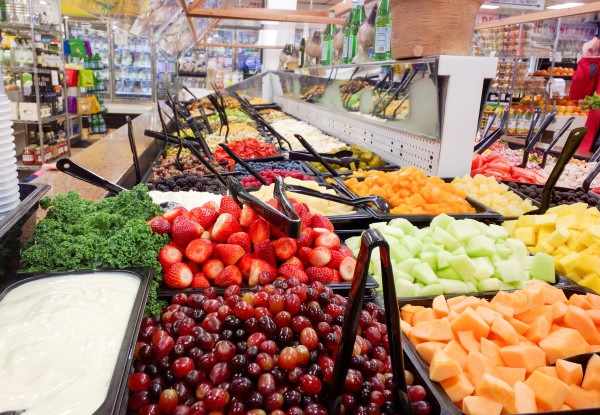
In today's world, where environmental concerns are at the forefront of many discussions, grocery stores are stepping up to the plate to embrace sustainable practices.
From reducing waste to sourcing local products, these grocery stores are making strides to lessen their environmental impact while still providing quality goods to their customers.
Sustainable Sourcing
One of the primary ways grocery stores are embracing sustainability is through their sourcing practices. Instead of relying solely on large-scale industrial farms, many grocery stores are turning to local farmers and producers.
By sourcing locally, a Dorchester MA Grocery Store not only supports the local economy but also reduces the carbon footprint associated with transporting goods long distances.

Waste Reduction
Another significant aspect of sustainable grocery store practices is waste reduction. This involves minimising packaging waste, implementing recycling programs, and finding creative ways to repurpose food that would otherwise be thrown away.
Some grocery stores have even introduced initiatives to donate surplus food to local charities, further reducing waste and helping those in need.
Energy Efficiency
Energy consumption is a considerable concern for grocery stores, given the refrigeration and lighting required to keep products fresh and visible. However, many grocery stores are investing in energy-efficient equipment and lighting systems to reduce their energy consumption.
From LED lighting to energy-efficient refrigeration units, these measures not only save money in the long run but also reduce the store's environmental impact.
Sustainable Packaging
In recent years, there has been a growing demand for sustainable packaging options, and grocery stores are taking notice. Many are opting for biodegradable or compostable packaging materials, as well as encouraging customers to bring their own reusable bags and containers.
By reducing reliance on single-use plastics and other non-recyclable materials, a grocery store Dorchester, MA is making significant strides towards a more sustainable future.
Education and Awareness
Education plays a crucial role in promoting sustainability, and grocery stores are using their platform to raise awareness among customers.
Many grocery stores provide educational materials and signage throughout the store, informing customers about the environmental impact of their choices and offering tips for reducing waste. Some grocery stores even host workshops and events focused on sustainability, engaging the community and fostering a sense of collective responsibility.
Collaboration and Innovation
Finally, collaboration and innovation are key components of grocery stores' efforts to embrace sustainability. Many grocery stores are partnering with suppliers, nonprofits, and government agencies to develop and implement sustainable practices.
Whether it's investing in renewable energy projects or experimenting with new packaging solutions, a grocery store is constantly seeking out innovative ways to reduce its environmental footprint and lead by example in the retail industry.
Conclusion
Grocery stores play a vital role in our daily lives, and their embrace of sustainable practices is commendable. By sourcing locally, reducing waste, improving energy efficiency, using sustainable packaging, educating customers, and fostering collaboration and innovation, grocery stores are not only reducing their environmental impact but also setting a positive example for other industries to follow.
As consumers, we can support these efforts by choosing to shop at a grocery store Dorchester, MA that prioritises sustainability and making conscious choices about the products we buy. Together, we can create a more sustainable future for generations to come.
Source - https://grocery-store-in-ma.blogspot.com/2024/05/how-grocery-stores-are-embracing.html




















Write a comment ...